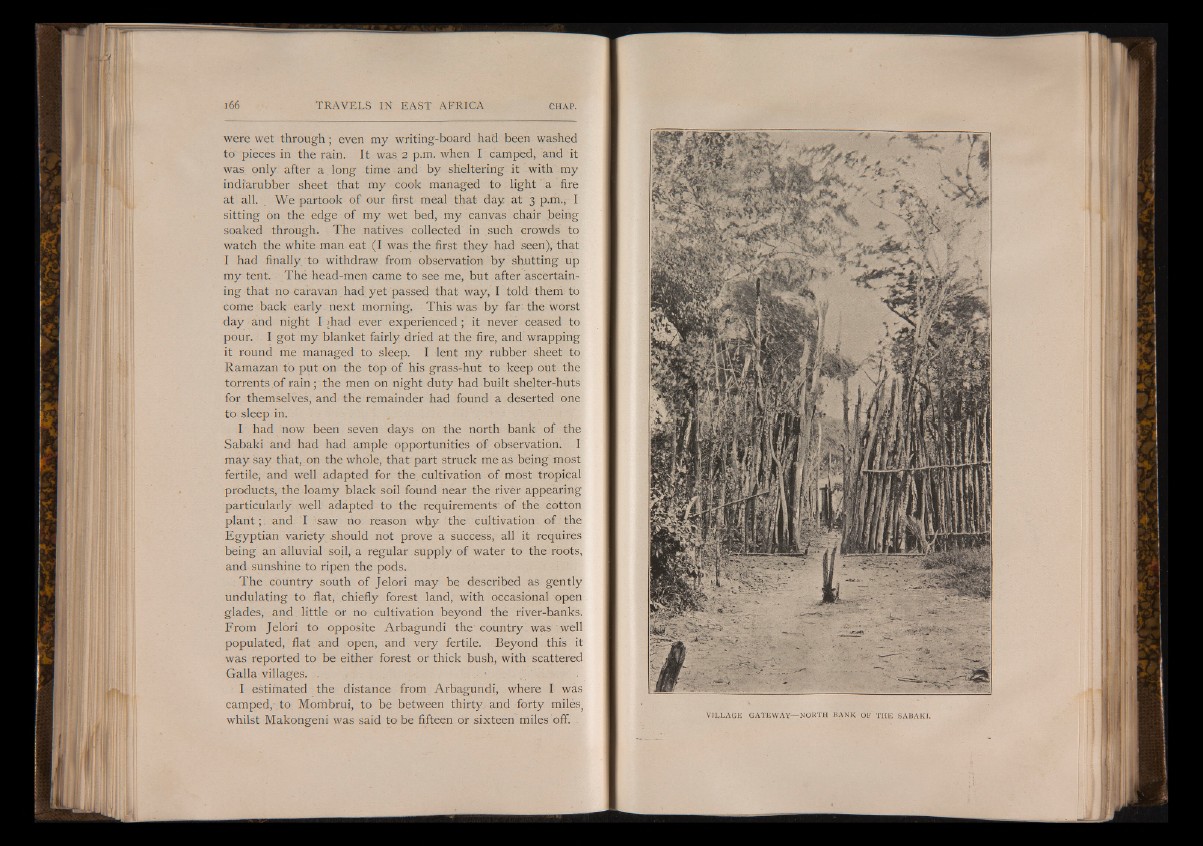
were wet through ; even my writing-board had been washed
to pieces in the rain. It was 2 p.m. when I camped, and it
was only after a long time and by sheltering it with my
indiarubber sheet that my cook managed to light a fire
at all. We partook of our first meal that day at 3 p.m., I
sitting on the edge of my wet bed, my canvas chair being
soaked through. The natives collected in such crowds to
watch the white man eat (I was the first they had seen), that
I had finally to withdraw from observation by shutting up
my tent. The head-men came to see me, but after ascertaining
that no caravan had yet passed that way, I told them to
come back early next morning. This was by far: the worst
day and night I Tad ever experienced ; it never ceased to
pour. I got my blanket fairly dried at the fire, and wrapping
it round me managed to sleep. I lent my rubber sheet to
Ramazan to put on the top of his grass-hut to keep out the
torrents of rain ; the men on night duty had built shelter-huts
for themselves, and the remainder had found a deserted one
to sleep in.
I had now been seven days on the north bank of the
Sabaki and had had ample opportunities of observation. I
may say that, on the whole, that part struck me as being most
fertile, and well adapted for the cultivation of most tropical
products, the loamy black soil found near the river appearing
particularly well adapted to the requirements' of the cotton
plant;, and I saw no reason why the cultivation, of the
Egyptian variety .should not prove a success, all it requires
being an alluvial soil, a regular supply of water to the roots,
and sunshine to ripen the pods.
The country south of Jelori may be described as gently
undulating to flat, chiefly forest land, with occasional open
glades, and little or no cultivation beyond the river-banks.
From Jelori to opposite Arbagundi the country was well
populated, flat and open, and very fertile. Beyond this it
was reported to be either forest or thick bush, with scattered
G.afla villages. .. . . . . . - ,
I estimated the distance from Arbagundi, where I was
camped, .to. Mombrui, to be between thirty and forty milès;
whilst Makongeni was said to be fifteen or sixteen miles off. V IL L A G E G A T EW A Y — NORTH B A N K O F TH E S A B A K I .